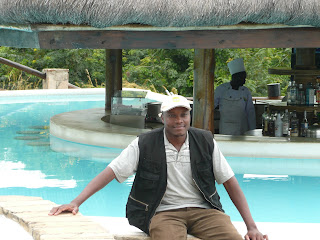First thing is to answer the question ”would you do it
again?” In a heartbeat.
The second thing is lasting impressions.
The most important is the people. There is no doubt that Uganda is a developing
country with all that implies. Many, in
fact most of the things we take for granted as basic aspects of life are not
there for most including: electricity, running water, shoes for children and safe, reliable
transportation. Life is hard but in
spite of all this the people are optimistic and generally happy. Singing and dancing are common.
I know the majority of the people I interacted with were
better educated and more affluent than most and had positions, as managers and
directors, of responsibility and respect in their communities. As I mentioned,
their dedication to make life better in their communities and to the
cooperatives they work with is amazing.
The second most important is that although their business
model is simple, they’re doing so many of the right things and for the right
reasons. We’re in a tremendous position
to help them and not necessarily with handouts.
Isaac quoted the phrase “give a man a fish and you’ll feed him for a
day, teach a man to fish and you’ll feed him for life”.
So, yes, we can donate safes for SACCOs, tractors for
producers and money to build warehouses
for the marketing coops. More
importantly we can provide knowledge and expertise to help them learn better
ways to run successful coops that will raise the standard of living for their
members and in their small communities.
They will be able to not just feed and clothe their children but to
educate them. Help them to help themselves. I really believe that education in its many
forms is an important, and perhaps the most important, key to Uganda’s future
and that future is bright.
It won’t change overnight but it is changing. What they will achieve won’t necessarily be
“our way of life” and fact, in many ways I hope it isn’t our way of life. They will and should make it their own. They have so much to work with and tremendous
potential. By helping them we help
ourselves.
I’ve been talking to my colleagues who traveled with me to
Uganda. The common theme is that even
with only 2 weeks distance from the experience, it seems almost like a
dream. We look at the pictures and
almost find it hard to believe that we were really there and really did those
things. Of course, we hope we’ve made a
difference for the people we met. Just
as importantly we’ve changed.
My challenge now is to find ways to keep this all alive and
to continue to make a difference.





































..JPG)
;+this+is+the+step+before+forming+a+SACCO+and+they+meet+under+a+mango+tree+in+the+village.JPG)




